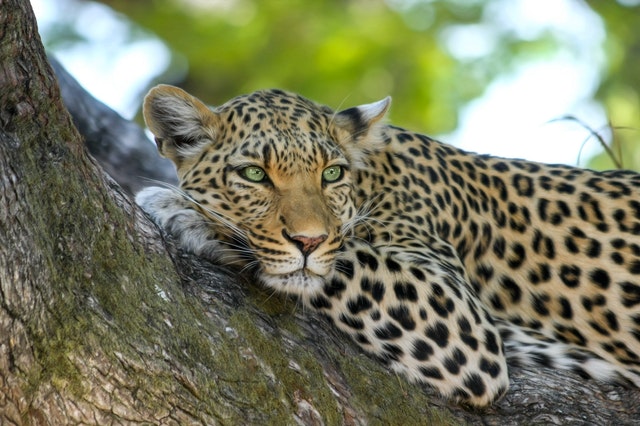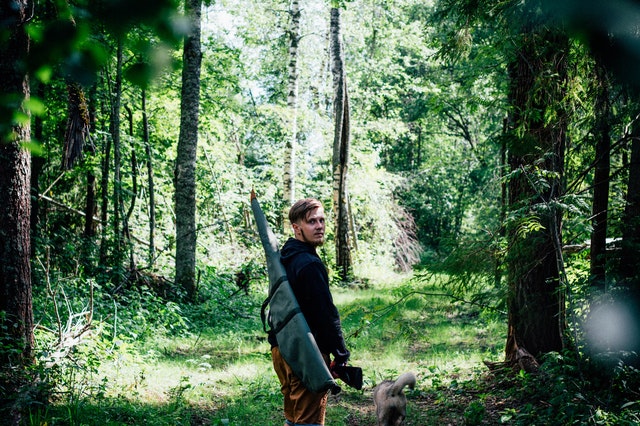Nature is the most precious thing. We need to protect our natural parks and virgin beaches–or we will destroy them, juts like we did with most other unprotected natural sites. The visitors of these places should be informed about the rules, and there should be someone eligible to enforce the adherence to the rules.
You will be responsible for these things as a park ranger, and for a variety of other duties. Your tasks will change depending on your place of work and exact position in the park, but they may include: patrolling the campsite, clearing, marking and maintaining trails, conducting educational presentations and short tours, mostly for school children, performing animal care, opening and locking the gates of the park, and others.
Let’s have a look at questions you may face while interviewing for this interesting and well-paid government job.
Table of Contents
Why do you want to work as a park ranger?
Love for nature, and an honest desire to protect the natural habitats of plants and animals, goes without saying as your primary reason. But you should say more than that.
Tell the interviewers that you believe to have decent communication skills, ability to work independently, and are in a good shape.You can also point out the educational part of the job–you’d love to talk to children who come to visit the park, helping them to understand nature better, and to start caring for it more, and protecting it.
The interviewers should get an impression that you see a meaningful purpose in the job, and at the same time you are confident that you’ll handle it, with your skills, degree from forestry or biology, and the right attitude to nature and visitors of the area.
What do you know about this particular park (beach, protected site)?
This is how they test how serious you are about your application. Did you do your homework? And, if you apply for a general park ranger job, do you have some particular places on your mind, parks where you’d like to work?
You should know something about the plants, animals, trails in the park. Luckily the information is typically available publicly on Wikipedia, and you can also find some pictures with a simple Google search. You just need to devote some time to your research. Read and make notes, and print them before the start of your interview.
It is also important to speak with enthusiasm about your future place of work. They should get an impression that you are excited about your role in the park, and about all the wildlife you’ll help to protect and spread awareness of while talking to the visitors of the park.
In an ideal case, if it is possible logistically, you should visit the park upfront. See what’s going on there, how many visitors come to the place, and what do park rangers do on a daily basis. You can even talk to one of the existing rangers to find out more information about the job and the park itself.
How do you imagine a typical day in work in this park?
The most important thing is to show proactive approach to work. Ensure them that you do not plan to sit in your comfy office while rain falls down, or while you basically do not feel like doing anything.
On the contrary, you want to be out there, patrolling the area, talking to people, ensuring that they oblige the rules, explaining things, taking care of the trails, and so on, and so forth.
Of course you’ll have your phone or walkie-talkie always on you, to be able to react promptly to any incident in the park concerning animals or visitors of the place.
* May also interest you: Zookeeper interview questions.
How do you feel about conducting educational presentations?
You shouldn’t be afraid of public speaking. On the contrary, you should emphasize the importance of making tours and presentations, helping the visitors to understand the need to protect the nature, and what they can perhaps do in their daily lives, in order to help protect the endangered species, or natural resources in general.
Say that you want to learn the ins and outs of the park, to be able to answer every question they may have, and to deliver interesting and engaging presentations to the visitors of the place, to help them see the importance of wildlife and its protection.
What would you do to prevent forest fires from erupting in the area?
Everything starts with prevention. First of all, you will instruct the visitors. You will place enough informational boards around the entire area, clearly stating the smoking or any other form of open fire is prohibited, and will be penalized severely.
You will also patrol the area regularly, especially the places most prone to fire, to ensure that you spot any incident early enough, before it grows into something bigger, a hard to control fire that would cause a huge damage to the area…
Ensure the interviewers that you are aware of the danger, and will not underestimate anything when it comes to fire prevention.
What will you do when you find wounded animal in the park?
This really depends on many things–the type of an animal, the severity of the wounds, and also your training and specialization.
Anyway, you should never ignore it. If you are trained to treat the wounds, you may tranquilize the animal, take it to the place intended for such cases, and provide treatment. You may also drive the animal to the veterinary doctor responsible for the area.
But your work does not end here. Ensure the interviewers that you will investigate the case properly. What exactly happened to the animal? Does their injury have anything to do with the activity of the park visitors? Or are perhaps poachers responsible for the incident?
You will try to find the reason, report it to the authorities, and take measures, trying to prevent similar incidents from happening in the future.
* May also interest you: If you were an animal, what would you be?
This is a physically demanding job. What do you do to stay in shape?
Talk about any exercise you do. This can include going to the gym, but also running, cycling, swimming, and doing long hikes in the nature.
You can also ensure the interviewers that you aren’t afraid of strong sun, rain, snow, or any other weather conditions. As long as you have good clothes (and you’ll have such in this job), you are ready to patrol the park in any weather, taking care of your duties, protecting both the animals and the visitors of the park.
Where do you see yourself in five years time?
Job of a park ranger does not offer many career growth opportunities. Good job candidates should not aim for such things anyway… Tell them that you’d love to work in the same park in five years time, seeing it grow, seeing the results of your good work.
You do not want to stagnate though. You hope to learn new skills, to further improve your knowledge of the animal kingdom, to improve on your presentation and listening skills, and basically become better in whatever you do in the park as a ranger and protector.
But as long as we talk about employment and jobs, you’ll be happy to work as a park ranger in five years time, or even later in your career. At least that’s what you should say in your interview.
How do feel about living on-site?
Sometimes you can find right answers directly in the questions of the interviewers. If they ask you about living on-site, working on weekends, or doing night shifts, you can be sure such things belong to the job. Ensure them that you read the job description carefully.
If it is a remote area, and perhaps one that is prone to poaching or other criminal activity, living on-site is the only sensible way to do this job. Certainly you won’t be the only employee in the park, and you’ll have a chance to travel home (if you do not decide to make the place your new home).
It is simply important to show some flexibility. Maybe you have a partner or even a family, but the same can be true about other employees of the park. The fact that you stay onsite during some weekends means that your colleagues can go home. Other weekend they will pay you back the favor. That’s the attitude they seek in a good applicant for this job.
Some other questions you may face while interviewing for a job of a Park Ranger
- Imagine that you spot a ten years old kid walking in the off-limit area. What will you do?
- What is your favorite animal?
- Have you ever taken part in a search and rescue operation? What was the outcome? What role did you play in the operation?
- Are you willing to travel?
- Imagine that one of the guests reports that their child got lost in the park. Describe the steps you will take in this situation.
- Are you a detail oriented person?
- What are your salary expectations?
Conclusion, next steps
Interviews for Park Ranger positions belong to interviews with average difficulty. You won’t typically compete with many applicants, but there aren’t many vacancies either, since job hopping rates are very low in this field.
Try to prepare at least a short answer to each question from our selection, and do not forget to learn as much as you can about your future place of work. Last but not least, most park ranger jobs are government jobs. And in interviews for government jobs, personal preferences always play a role. Try to make a good connection with your interviewers.
Taking interest in their work, asking questions, and showing a positive body language throughout the interview, will certainly help you to make a good connection.
I hope you will succeed, and wish you good luck!
Matthew
May also interest you:
- Body language in an interview – Learn how to say the right things without uttering a single word.
- Animal Shelter interview questions.
- How to overcome interview nerves – Feeling nervous before the start of your interview? We will show you how you can overcome your nerves.


